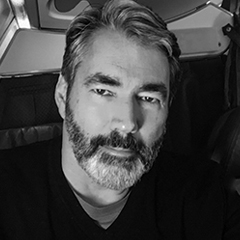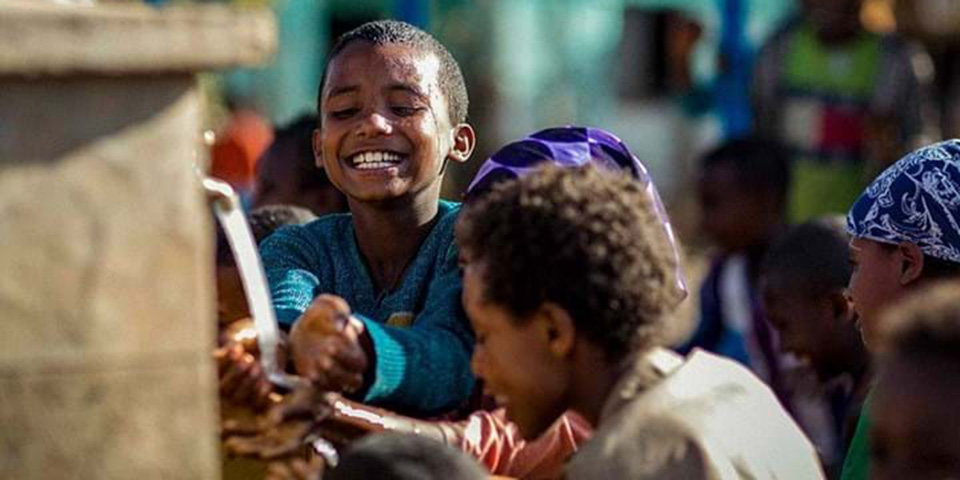You know that warm glow you get from helping an old person cross the road, or donating to a crowd-funding page? There’s science at work there, and the benefits are myriad. Doing good for others can do good for your own wellbeing – every bit as much as working out, eating right, getting enough sleep and not spending four hours a day on Instagram.
This fledgling field is the domain of Otis Fulton (pictured) – a psychologist and university basketball hero whose non-profit, Turnkey, helps organisations turn human behaviour into fundraising action. Currently applying his insights to assist Workout for Water – a charity partnership between Les Mills and UNICEF – Otis says the rewarding the warm glow we feel for doing good is as old as humanity itself.

Some 98% of our ancestors lived on the African savanna, where our deepest instincts developed. On the savanna, knowing where you stood was a matter of life and death. You wanted people to recognise you as a valuable person, because that meant that when it came to sharing out food and resources, you were going to be included. So recognition became a major social cue. That instinct has never left us, Otis says. “Our antenna for recognition is very finely tuned.”
Research shows that we want to be seen by others as someone who does things that benefit the group. We also want to see ourselves that way. In an experiment by Matthew Lieberman, a UCLA neuroscientist, people in MRI machines were asked to read out simple little statements of recognition, things like: “When I need help, you’re someone I know I can always turn to.” Just reading those words out loud would light up a reward pathway in their brain – the very same reward pathway that would light up when they ate their favourite food. Our recognition is very finely tuned, in other words, and very deeply ingrained, even if the recognition comes from a complete stranger. Lieberman writes: “Our brains crave the recognition of others to an almost embarrassing degree.”
"Workout for Water gives us a common mission. It gives us all the opportunity to be part of something that’s bigger than ourselves."
We all have a need to feel connected, says Otis. We all need to feel that we’re part of something larger than ourselves. What motivates us, what makes us feel that it's worth doing a program like Workout For Water, is the idea that people like us do things like this.
Otis says peer-to-peer fundraising is really all about leveraging the power of human connection. “Let’s say I have a boy in the Cub Scouts here and I’d like you to support his Cub Scout troop or soccer team. Whatever it is, you know you’re going to make a donation because you’re my friend,” he explains.
“Not because you’re supporting the team so much, but because you’re supporting me. Peer-to-peer overall has about a 25–35% success rate. That is when we reach out to four peers and ask for a favour, to ask for a donation, say. About one in four of them will say yes. And so it’s a very powerful way to raise money, and it’s really because we want to be sociable with people who are in our social group.”
“One of the things that’s really so valuable and unique about the Les Mills component with Workout For Water is that these are folk that are engaged in this workout program anyway, so it's natural to think, ‘Yes I’m working out I’m with my community, this is something that’s going to be easy for me to do that’s going to have a real benefit for other people, that I find rewarding’.”
Making it easy for your club’s members to do is very important. Otis says: “People want to do this, but you just can't make it so difficult that they think it's not worth the effort.” It’s important to make the barrier to entry very small. “So for a very small amount of money say or a very small amount of work, people can feel like they’re really accomplishing something that’s important. It really gives you a chance to experience a sense of connectedness that you’re connected to a mission that’s bigger than you and it’s something that you can easily accomplish.”
If members can catch the feeling, ‘This is something that’s important to my community, I’m a part of my community, people like us do things like this,’ then they feel motivated to take part. In other words, Workout for Water gives us a common mission. It gives us all the opportunity to be part of something that’s bigger than ourselves.
The great thing is that even a little does a lot. “What participants are doing has an impact. It may not feel like that much, but say you’ve raised $200. For a lot of people, that’s a nice dinner out on the town. But in terms of what $200 can do for UNICEF, it's a whole lot more. It may not seem like a big deal. But it really is.”
And so the $200 that might buy a few metres of pipe, or a tap stand, in turn becomes an even more powerful story: what it means to a teenage girl in a village who no longer has to walk five hours each day to fetch water for her village and instead can go to school. Suddenly that $200 means an awful lot more. Otis adds: “The real-world impact they’re having is that you are enabling someone in Africa to do these things – you’re changing their life.”
One final note: Otis is a firm believer in the power of teamwork. A proud lifelong supporter of the University of Virginia basketball team, this year he watched the team win the elite US inter-collegiate competition the NCAA Division 1 for the first time ever. His own 1976 University of Virginia basketball team was the first to win a university championship for their college and he played in the very first NCAA game they ever went to. “We old guys, we like to say, we laid the foundations.”
The good you do can live a very long time.

